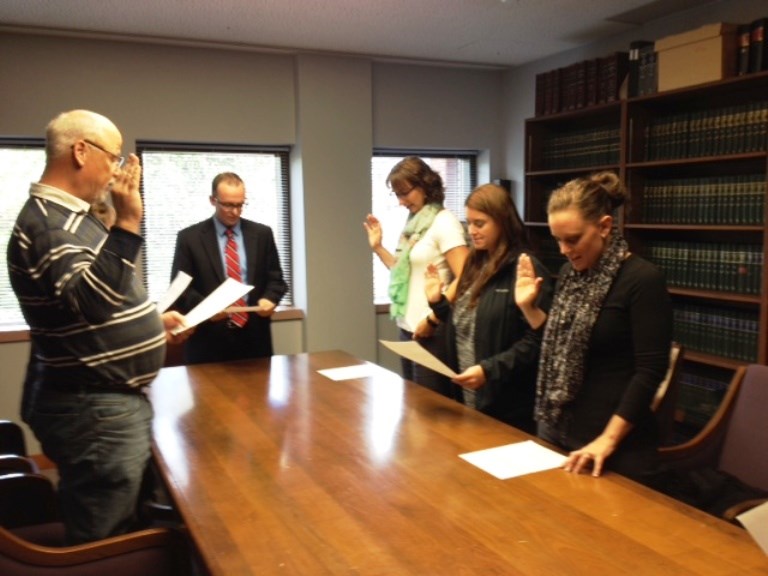When the city’s Crown Attorney, Russell Wood, swore in five more volunteers for the Youth Justice Committee on Friday, a very quiet group marked a very big anniversary.
Ten years of keeping youth out of the court system.
The Youth Justice Committee has offered restorative justice services to the area for a decade.
Lynn Racicot, who runs the program out of YES Employment, says the reason the program has worked is its volunteers.
“We are all like-minded when it comes to the youth and the beliefs in the program. We all believe in community very strongly. We believe that youth should be given a second chance.”
“None of us have veered away from the original reason why we all got involved in the first place. It’s a different way of doing things, I think it’s grass roots, we all think so. We see results in conference.”
Erin Fitzgerald, who was among the program’s first volunteers, agrees, with a twist.
She credits the community at large.
“The North Bay community and its concern for the youth within the community I think the volunteers themselves, the organizers, Lynn and the Crown that continue to run a fantastic venue that does really make an impact within our community.”
Youth Justice works like this: if a youth is arrested for a crime, the police and the Crown decide whether or not he or she is eligible for the program.
The youth must admit responsibility for the crime, then appears before a group of trained community volunteers, sometimes with the victim in the same room.
The crime is discussed, the youth apologizes, and there is discussion about what the youth can do to make what happened right.
Usually the youth is given some kind of solution to correct the behaviour, and a time frame to complete it.
Youth Justice says it provides a voice to the victim, a chance for the offender to hear the impact their actions had on the victim, their families and the community.
The idea is to take the minor crimes off the books and out of the courts while also making the offender aware of damage, and aware of how to make it right.
North Bay’s YJC is one of 39 similar projects across the province, and is likely one of the busiest.
The YJC holds anywhere from fifty to seventy conferences a year.
The real result, says Racicot, is how few youth are now appearing before judges.
“What we are seeing over the past few years is that the court now runs every second week so twice a month as opposed to every week, because the number of youth coming to court, the offences were down. We think a lot of it has to do with the pre-charge programs that are some of diversion, it seems to be working well right across the province.”
That saves time, money, and maybe, steers a youth away from a life of crime.



